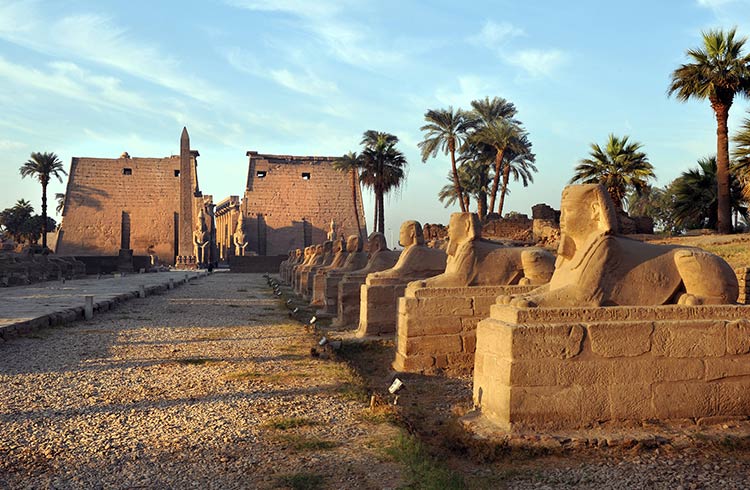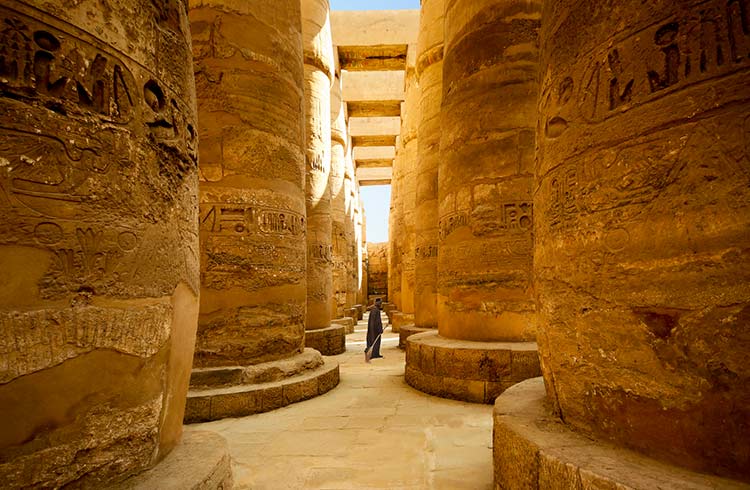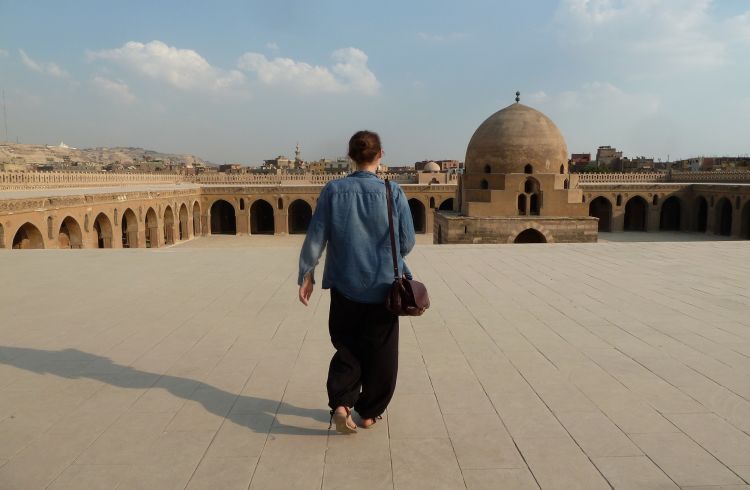5 Things I Learned While Working in South Asasif, Egypt
Laughing and digging her way through the foothills of South Asasif in 114 degree heat, Dominique Navarro shares five lessons she learned working in a team of 80 local men.
 Photo © Getty Images/oversnap
Photo © Getty Images/oversnap
"Welcome to Alaska!" I was greeted upon arrival in Luxor, Egypt.
Working in the depths of a temple tomb excavation at the foothills of South Asasif in 114 degree heat, dense white dust soaking into my sweaty Egyptian cotton shirt, the last thing I would expect is the inability to stop laughing. I was in awe of the strength and endurance of a team of over 80 local men, hauling hefty loads of rubble on their shoulders in cumbersome rubber baskets ascending a steep plank of wood out of the tomb, and descending with massive limestone blocks tied with ropes and a dozen men easing them down. Yet I was more shocked by their attitude: despite the sun and hardship of their labor, these guys knew how to laugh. I couldn't understand the nature of all their jokes (and possibly some of them were about me) but to share in their amusement was welcomed and I was embraced as a member of the team.
Lesson one: keep your sense of humor! This applies to almost every (potentially awkward) encounter you might have with the locals.
- Slow Down, You're in Egypt
- Show Gratitude
- Take Home Memories in Egypt
- Be Optimistic
- Into the Unknown
1. Slowly, slowly...
Being from Los Angeles, with its deadlines and traffic, and a clock always ticking, it's part of my nature to rush. But in Egypt, I learned another kind of pace. Whether walking down the road to catch the ferry across the Nile, or digging for fragments of hieroglyphics from the debris in the tomb, I was reminded again and again, "slowly, slowly". Taking the advice, I found I could endure the sun's beating and work longer. Walking leisurely allowed me time to look around, carry-on a conversation with strangers, and find myself in unusual new circumstances. One afternoon, I made friends with a felluca captain who made me a glass of hot karkaday on his boat, and in silence to the sway of the Nile beneath us, we enjoyed the sun setting over the West Bank. I had places to go and people to meet, but it is a memory I will never forget.
2. Shukran
Gratitude can take you far, and I've never been so grateful for the hospitable nature of strangers. Walking in the afternoon heat to get to the East Bank for errands, when most of the town is napping and a taxi isn't available for hours, I received countless rides from perfect strangers. Perhaps this shouldn't be recommended as "safe" but after a month living in Luxor I had encountered nothing but kindness. Spontaneously one morning I caught a ride with an American couple who were being driven to Abu Simbel (with the lack of tourists this year, flights to southern Egypt have been cancelled). I had no idea how lengthy the trip would be: 14 hours of driving roundtrip. But the two hours we spent at the remote temples of Abu Simbel were well worth it; standing alone in the Holy of Holies facing the four sculpted figures of Ra-Horakhty, King Ramesses II, Amun-Ra and Ptah, I truly felt like a time traveler. The long drive home was filled with deep, overwhelmed exhaustion, and when our tireless driver stopped in a little town along the way to invigorate himself with a cup of hot tea, I joined him, thanking him profusely for his zealous driving: "Shukran! Shukran!" He was pleased, and shared his tea with me. (I also made sure to give him a good tip!)
3. Habibi Illa'Abed
Most memorable of all the imagery I was immersed in each day - the Nile River flowing gently through the city, the mountains cradling their ancient tombs, and the people working tranquilly in their fields amongst flocks of cattle egret - I adored the infinite depictions of love painted and carved with devotion by Ancient Egyptians in all of their temples and tombs. Pharaohs embrace their wives, or kneel in adoration to their gods and goddesses. Animals are worshipped and idolized. All of life seems a celebration of harmony between the stars, the earth and its perfected beings. To glimpse their joys and passions so many thousands of centuries later made me reflect on my own life and values, and I feel humbled and inspired to be more devout toward this experience of life. Lesson four: take something home with you, spiritually speaking.
4. Insha'Allah
God willing, everyone seems to say about almost everything. It is a way of expressing hope, faith and fate, which - to me - describes the Egyptian personality completely. In a country facing so many political unknowns and poverty at every turn, it is amazing to find so much optimism. I left Egypt with amazing memories, new friends, and a fresh faith in life. "Insha'Allah you come back", my Egyptian friends told me.
5. And Finally...
Be optimistic and trust in the unknown that lies ahead.
About the Author
Dominique Navarro has worked as Art Director in the documentary television and film industry for nearly a decade for programs featured on the History Channel, Discovery and National Geographic. The diversity of her assignments has led to an unusual journey working with everyone from the Los Angeles County Coroner's Office to the US Marine Corps, and working everywhere from the Salton Sea to NASA. She is also a forensic artist creating law enforcement composite sketches and reconstructions from the skull of unidentified persons and ancient archeological remains. You can view her website portfolio at www.dominiquenavarro.com
Related articles
Simple and flexible travel insurance
You can buy at home or while traveling, and claim online from anywhere in the world. With 150+ adventure activities covered and 24/7 emergency assistance.
Get a quote

No Comments